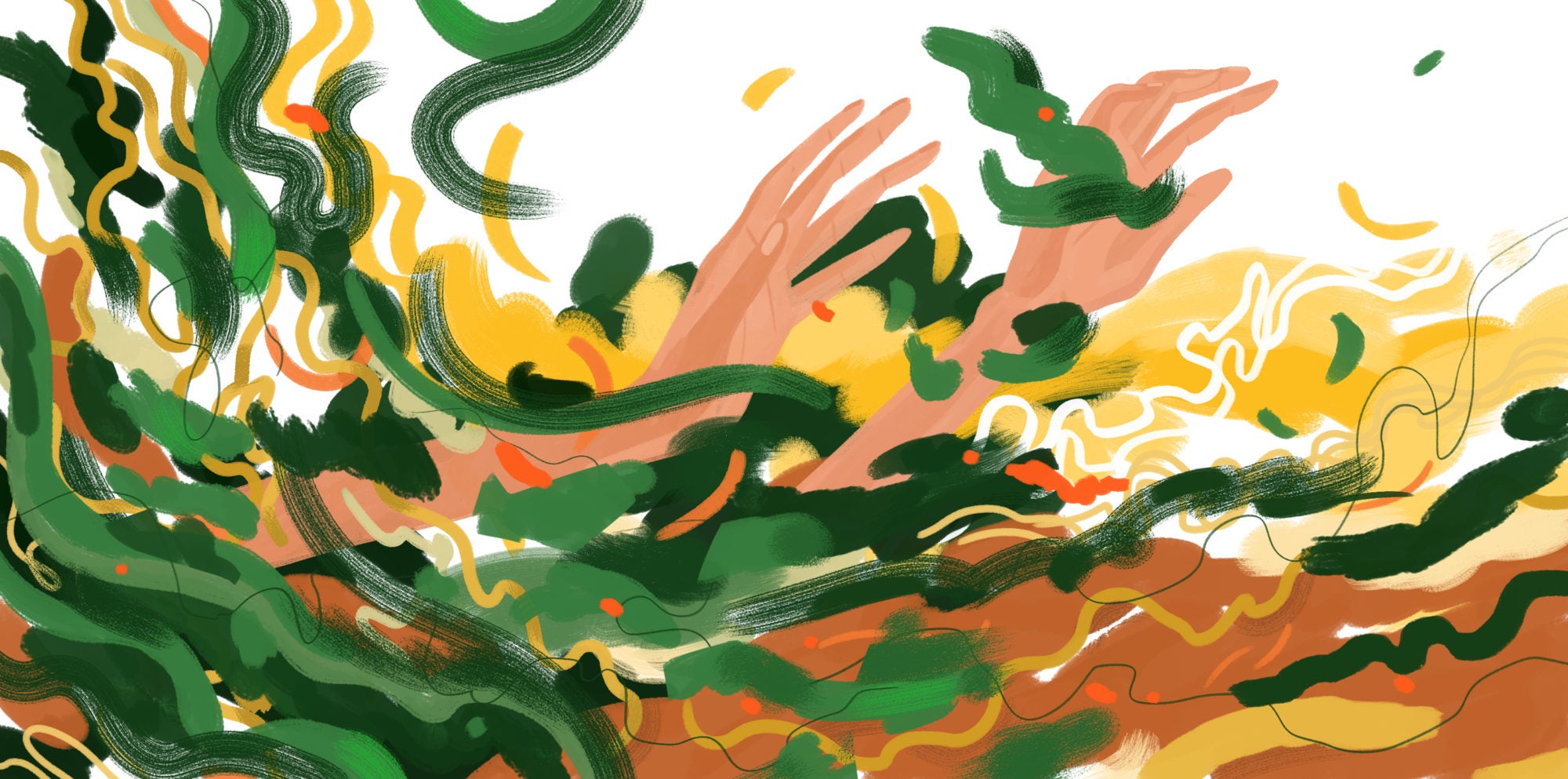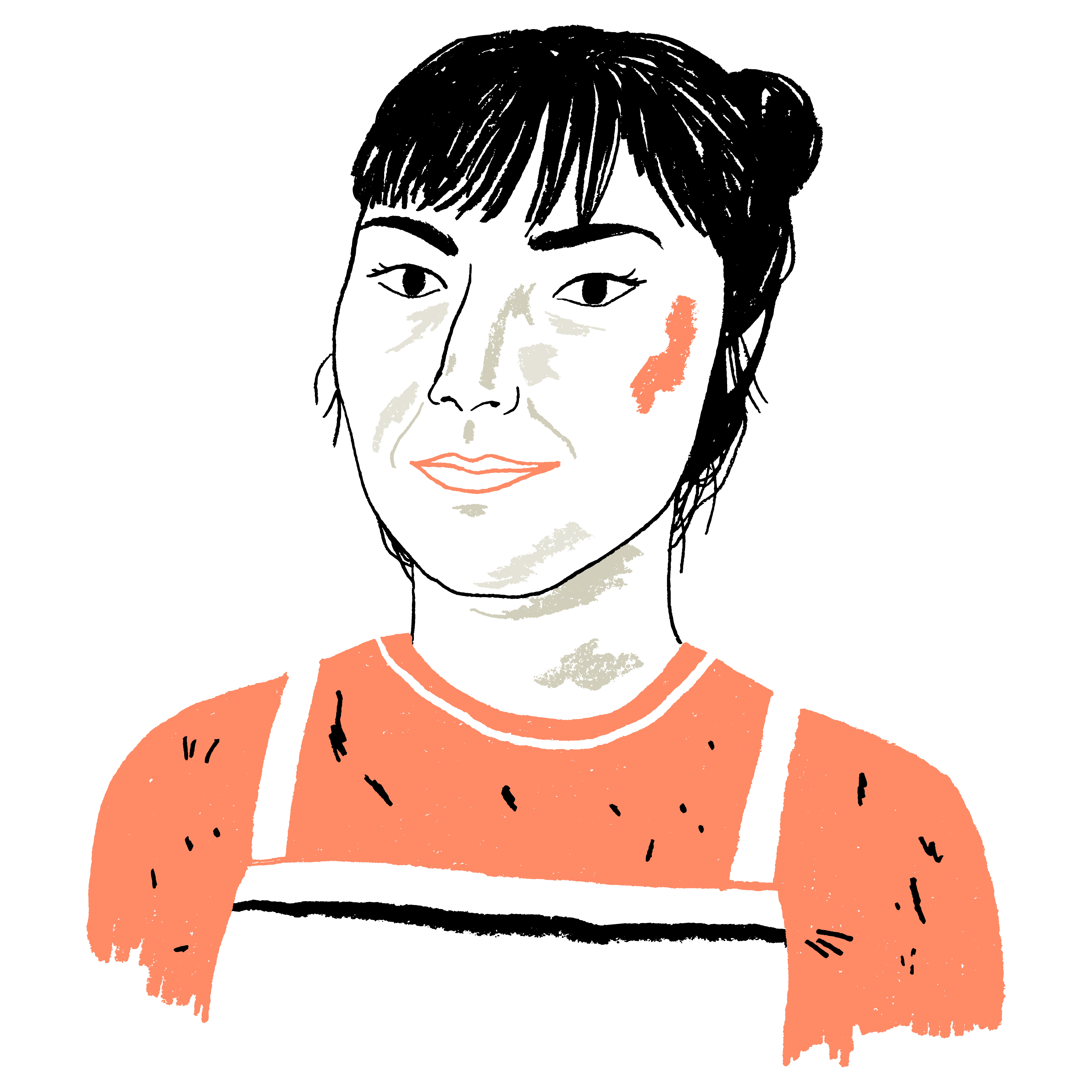
For a chef struggling with an eating disorder, a restaurant kitchen is an especially painful place to be.
It is incredibly difficult to be a woman in the culinary world. You are expected to be twice as talented, twice as tough, capable of taking twice as much shit, all while taking up half as much space. You’re expected to keep up with all the Fernet shots, Tecates after service, and poutine at family meal while still maintaining an air of feminine desirability—and it can create a dangerous and toxic environment for a lot of women in the restaurant industry I have known. It leads you to take drastic steps in order to keep up your image as one of the “cool” female chefs.
Food has always been an integral part of my life. My mom raised me on dinners consisting of vegetables freshly picked from her garden and delicate bento boxes filled with culinary manifestations of her love for me. I was always destined to work with food: I would get up early in the morning to watch Jacques and Julia or Yan Can Cook and tried to faithfully re-create their bravado in my own show, Maya’s Kitchen, which my mother filmed at our house when I was four.
It was only natural that I would end up cooking in professional kitchens, turning what had been a favorite pastime of my childhood into my livelihood. I immersed myself in the global culinary world, researching the menus of the best restaurants and reading about ingredients and techniques I had never imagined. I relished eating out, developing relationships with fellow chefs and becoming inspired by their food. I’m still not entirely sure when food became such a formidable enemy.
On top of cooking, when I was growing up I was also a dancer. At some point in my teenage years, the years that most girls develop problems like this, I started taking drastic measures to try to get the lithe body type I thought I needed to be great at ballet. I wasn’t particularly successful, but I managed to make myself pretty miserable. In a twist of fate, I hurt myself dancing and had to reconsider what I wanted my career to be. I had been cooking in kitchens on the side all through high school, and suddenly it seemed like the most natural path in the world.
I went from trying to eat nothing to cooking for 12 hours a day. I got better. I ate anything and everything put in front of me. When I started traveling more, I got to eat at the restaurants whose menus I had idolized and researched for years. I was being accepted and recognized in the industry, and it felt incredible. Food was my art, my passion, and my entire life. Until it wasn’t.
I had just gotten a job at a new and very hotly anticipated restaurant. I had also just been dumped. I guess this was a dangerous combination for my self-esteem and stress levels. I started doubting myself, my attractiveness, my femininity. I was suddenly entirely uncomfortable in my own skin. I started throwing up.
Just a few times a week at first, when I ate big meals, then just on weekdays, and eventually after everything. It’s easy to discount the ramifications when you start seeing results. Food started to terrify me. This was the first restaurant I had ever worked at where everybody sat down and ate family meal together. I would watch people pile up their plates with pasta, potatoes, and fried chicken and try to mirror them. I didn’t want to appear like I wasn’t grateful for the hard work each cook put into the meal, or that I wasn’t part of the team. I told myself that nobody would notice that I ran to the bathroom every time after I wolfed my food down.
I was hungry all the time. When I couldn’t push past the hunger I would lock myself in the bathroom and read menus full of foods that I would never eat. I was hard to work with, unable to look past my exhaustion and my empty stomach. I wasn’t being my best creative self because I couldn’t understand why anybody would eat a tasting menu. Why would they consume and willingly digest so many calories in one go? I was disgusted by the excess. I ruined relationships with people important to me. I worked 15 hours a day and still forced myself to walk to and from work to burn off calories. I got instantly wasted every time we went out after work. I went crazy. My hair started falling out, and then my teeth. I ignored all these warning signs from my body telling me it was shutting down; I just kept working and starving until finally the pain in my mouth was so great I thought I was going to die.
I finally told my mother. She started making me dinner every night to have when I got home from work. I fixed my teeth. I started realizing that there were places that made the sorts of foods I wasn’t terrified of eating. Places, like Bar Tartine, that elevated vegetables and cooked with the purpose of nourishing the body rather than catering to the more decadent, opulent, over-the-top style of eating I was used to. I think I ate there every week for a month. I would sit by myself at the big marble bar and eat mushroom broth with barley and greens, or carrots with black sesame paste, or thinly sliced bread filled with whole grains and seeds to dip into green garlic spreads. I wasn’t afraid to eat there. I would leave every time a little stronger. And eventually I moved to Portland, land of green juice and quinoa bowls, and I started figuring out how to heal.
In some ways it makes sense: We as chefs obsess over food; it consumes all aspects of our life.
Cooks eat notoriously poorly. We drink a lot and smoke a lot and don’t always take good care of our bodies. It’s very difficult to balance a healthy lifestyle with a cook’s, and to some degree living an overly “healthy” life can be ridiculed. When I first started telling people about my struggle in the hopes that it would help me confront my issues, I was shocked at how many women I talked to immediately recognized some of my experience in their own. While not everybody takes it to the extremes that I did, it is jarring and disheartening to see just how prevalent it is in our industry. And while alcoholism and substance abuse among chefs and restaurant workers are well documented, eating disorders remain under the radar for the most part—harder to trace and harder to parse.
In some ways it makes sense: We as chefs obsess over food; it consumes all aspects of our life. One incredibly common sign of anorexia is pouring massive amounts of energy and time into making elaborate meals for other people as an excuse for you yourself to not eat anything. When you can put all of yourself into a meal meant for somebody else, it’s easy to hide your disorder behind that.
I don’t want anybody to think that I only approve of eating avocado and kale, when in fact it’s just the opposite. I miss the sort of free, limitless love I used to have for food more than anything. I would do anything to get back the joy that food used to fill me with. I am so envious of the person who can enjoy a burger with pure, unadulterated pleasure. I don’t remember the last time I ate a potato chip. Just the thought of it makes my mouth water a little.
I’ve replaced my anorexia with a more complicated disorder. It has been over a three-year battle, and I am finally better in the sense that now I eat, but I still obsess over the perceived nutritional value of everything I consume. I eat like a hamster. I am still working hard to convince the part of my brain that thinks I will instantly get fat if I eat a piece of pizza that it’s crazy. It’s harder than I ever thought it could be. I have worked up the courage to eat pizza at Lovely’s 50/50 on a few occasions, and it was glorious.

Maya Okada Erickson is TASTE’s Baker In Residence.
I’m just starting to get to the point where I get excited to eat out again. Restaurants in Portland, where I live, like Tusk and Ava Gene’s, have been instrumental in my recovery. These restaurants take vegetables and grains and make them unfathomably delicious, turning them into something I crave. I’m beginning to understand that there can be a happy medium between over-the-top dishes filled with cream, cheese, butter, and seared foie and raw kale with some birdseed on top (not that there’s anything wrong with either of those things). I have embraced and changed my style of cooking to incorporate alternative sugars, milks, and flours to make dishes that don’t sacrifice my integrity as a fine-dining chef but are still wholesome.
I am trying to get better. Which is why I wrote this. It is so incredibly important to talk about these things. Don’t suffer in silence. The restaurant industry is a cruel and unrelenting mistress. Depression, alcoholism, drug abuse, and myriad other afflictions run rampant. I kept it all hidden, bubbling under the surface until it quite literally nearly killed me.
I’m telling my story as a plea for everybody who feels like they’re suffering alone to please tell someone. It’s not weak, it’s strong, and the more we talk about eating disorders in the industry, the better support system we’ll build for those suffering from them. Don’t let it kill you. Food is life, and good food is absolutely worth living for.